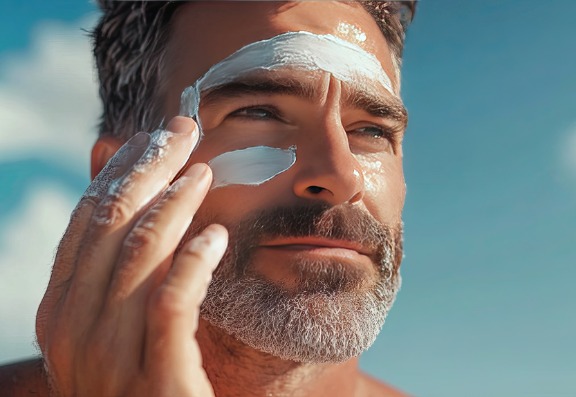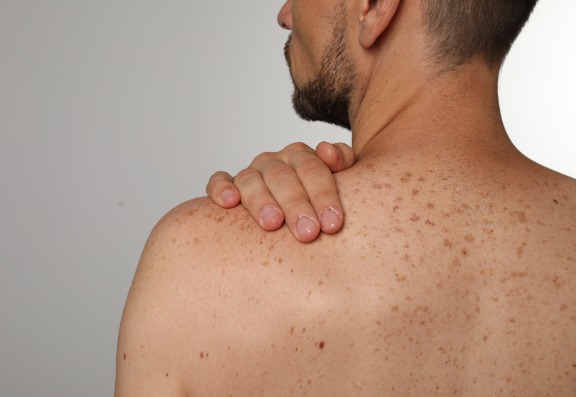A survey has found that only 18% of men use sunscreen on their face, compared to 42% of women. This could be for a number of reasons. For instance, women may be more likely to apply sun protection every day because it’s part of their regular skincare and makeup routine. Men may not have the same motivation to take care of their skin and prevent signs of ageing.
There may also be a misconception that sun protection is a beauty product, and therefore not ‘masculine’ or ‘manly’ (which is obviously not the case!).


For men in the UK, melanoma is the 6th most common cancer. It is thought to affect 1 in 36 men, with approximately 8,400 new cases each year.
The survival rate for melanoma skin cancer is higher for females than for males; statistics show around 1,400 men in the UK die from melanoma every year, compared to 980 women.
If you want to read more, the experts at Consulting Room really know what they're talking about and have put together sunscreen and pigmentation FAQs just for you.
If you have more questions, you can use the sunscreen and pigmentation questions feature to talk to our panel of trained medical experts.
If you're keen to get started with any of these treatments right away then you're in luck - those clever folks also have a list of trusted, accredited sunscreen and pigmentation clinics in your area.
Thanks to the author of this blog, Dr Lisa Delamaine.
As Medical Director of Persona Cosmetic Clinic, she is responsible for, and dedicated to, patient safety, ensuring treatment for each client is appropriate and carried out most safely and effectively. The treatments offered at Persona are hand-picked, researched and trialled by Dr Lisa guaranteeing we only offer the best and most results-driven treatment options.
Lisa is consistently adding to and tweaking our wide treatment menu ensuring Persona is at the forefront of the aesthetic industry.
Get in contact via the Persona Cosmetic Clinic website or call 0208 304 4913.

Croma’s latest range brings professional in-clinic results into your everyday routine. Clean, vegan, and packed with powerhouse ingredients, these products are designed to hydrate, brighten, protect, and fight early signs of ageing.
We ask an expert skin doctor: ‘What are the benefits of LED therapy, and is it worth the investment?’
Here we’ll guide you through how to identify its triggers and what you can do to prevent it.
Hey, wait!
Before you go.....
Let's stay in touch, pop your details here and we'll send our editor's hand-picked updates on your fave subjects.